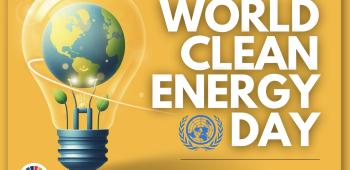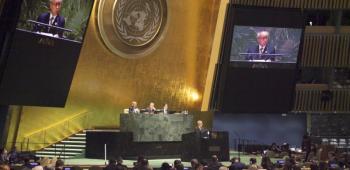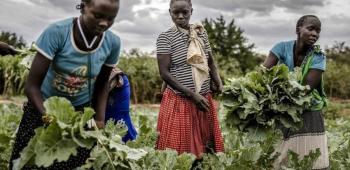Energy
Description
In 2015, the UN General Assembly adopted the 2030 Agenda for Sustainable Development, which include a dedicated and stand-alone goal on energy, SDG 7, calling to "ensure access to affordable, reliable, sustainable and modern energy for all". Energy lies at the heart of both the 2030 Agenda for Sustainable Development and the Paris Agreement on Climate Change. Achieving SDG7 will open a new world of opportunities for millions of people through new economic opportunities and jobs, empowered women, children and youth, better education and health, more sustainable, equitable and inclusive communities, and greater protections from, and resilience to, climate change. The Global Roadmap for Accelerated SDG 7 Action resulting from the High-level Dialogue on Energy 2021 provides a guide for collective action on energy across sectors.
DESA supports these efforts by providing secretariat services for intergovernmental discussions on energy, by conducting and facilitating relevant policy analysis, and by engaging in the required capacity building.
DESA serves as the Secretariat for UN-Energy.
DESA convenes the SDG7 Technical Advisory Group.
As the Secretariat of UN-Energy, DESA facilitates the Energy Compacts.
Pagination
Pagination
Milestones
-
September 2021 High-Level Dialogue on EnergyHeld on 24 September 2021, the High-Level Dialogue on Energy was the first global gathering on energy under the auspices of the General Assembly since 1981. The Dialogue promoted the implementation of the energy-related goals and targets of the 2030 Agenda for Sustainable Development by raising ambition and accelerating action. It resulted in the Global Roadmap for Accelerated SDG7 Action and Energy Compacts including more than 400 billion US Dollars in voluntary commitments.
-
July 2018 The First SDG 7 ReviewOn 10 July 2018, the High-level Political Forum (HLPF) conducted a review of SDG7 for the first time. The session brought together leading representatives from government, international organizations, and civil society to discuss progress and actions needed to ensure access to affordable, reliable, sustainable, and modern energy for all.
-
January 2018 SDG 7 ConferenceA global SDG 7 meeting was held from 21 to 23 February 2018 in Bangkok, UN ESCAP. The Global SDG 7 conference was co-convened by UN DESA, UN ESCAP and the Ministry of Energy of Thailand. The conference brought together key stakeholders from Governments, UN system and other international organizations, the private sector, and civil society to engage in a dialogue that emphasized the integrated and cross-cutting nature of sustainable energy and its multiple roles in supporting the achievement of the SDGs. The conference was generously supported by Norway, Republic of Korea, China, Germany, The Netherlands, the European Commission, ENERGIA, and Hivos.
-
January 2015 SDG 7Sustainable Development Goal 7 aims to "Ensure access to affordable, reliable and modern energy for all" ensuring universal access to affordable, reliable and modern energy services (7.1), increasing substantially the share of renewable energy in the global energy mix (7.2), doubling the global rate of improvement in energy efficiency (7.3), enhancing international cooperation to facilitate access to clean energy research and technology (7.a) and expanding infrastructure and upgrading technology (7.b).
-
January 2014 UN Decade of SE4AllThe United Nations have been working together with stakeholders in order to develop a more coordinated plan of action at global level to ensure progress on sustainable energy for all. The United Nations Decade of Sustainable Energy for All (2014-2024) represents a precious opportunity for all stakeholders to gather around a common platform to take further action and complement activities and synergies ensuring progress towards the overall objectives of sustainable energy for all.
-
January 2014 1st Annual SE4All ForumConvened as a high-level meeting and organized by the UN SG Ban Ki-moon,the SE4All Forum marked the beginning of the United Nations Decade of Sustainable Energy for All 2014-2024, including its initial two year focus on Energy for Women, Children, and Health. On the last day of the Forum, more than 60 delegations attended the High-Level Dialogue on Energy in the Post-2015 Development Agenda.
-
October 2012 International Year of SE4AllThrough the adoption of Resolution 65/151, the UN General Assembly established the year 2012 as the International Year of Sustainable Energy for All. This decision aimed at raising awareness about the importance of increasing sustainable access to energy, energy efficiency, and renewable energy at local, national, regional and international levels. Furthermore, it focused on the impact that energy services have on other sectors such as productivity, health, education, climate change, food and water security, and communication services. .
-
January 2012 Future We Want (Para. 125-129)Future We Want recognizes the crucial role that energy plays in the development process, emphasizes the need to address the challenge of access to sustainable modern energy services for all and recognizes that improving energy efficiency, increasing the share of renewable energy and cleaner and energy-efficient technologies are important for sustainable development.
-
January 2011 SE4All InitiativeIn September 2011, UN Secretary-General Ban Ki-moon launched Sustainable Energy for All as a global initiative aimed at achieving sustainable energy for all by 2030 and able to mobilize action from all sectors of society in support of three interlinked objectives: providing universal access to modern energy services; doubling the global rate of improvement in energy efficiency and doubling the share of renewable energy in the global energy mix.
-
January 2007 CSD-15, Implementation Thematic ClusterCSD-15 recognized that energy was crucial for sustainable development and poverty eradication. The Commission agreed on the need to further diversify energy supply by developing advanced, cleaner, more efficient, affordable and cost-effective energy technologies.
Pagination
- Page 1
- Next page




